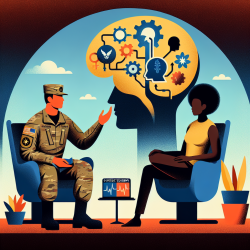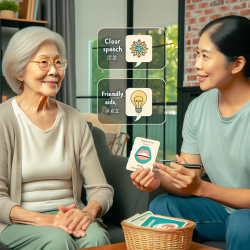In today's rapidly evolving professional landscape, practitioners across various fields are constantly seeking ways to improve their skills and enhance their effectiveness. One unconventional yet insightful source of inspiration comes from research conducted in military settings. A recent study titled Attitudes towards women in the military and their relation to both quantity and quality contact with female leaders provides valuable lessons on leadership, empathy, and intergroup relations that can be applied in diverse professional environments.
The Power of Contact: Quantity vs. Quality
The research highlights the significance of both the quantity and quality of contact with female leaders in shaping attitudes toward women in traditionally male-dominated fields like the military. For practitioners, this translates into understanding how interactions with diverse groups can influence perceptions and behaviors.
- Quantity of Contact: This refers to the number of interactions with individuals from different backgrounds. In a therapeutic setting, increasing the frequency of interactions with clients from diverse backgrounds can help reduce biases and foster a more inclusive environment.
- Quality of Contact: The depth and positivity of these interactions are crucial. High-quality interactions can lead to greater empathy and understanding, essential traits for any practitioner looking to improve client relationships.
Reducing Intergroup Anxiety
One of the key findings from the study is that quality contact with female leaders helps reduce intergroup anxiety. For practitioners, this means that engaging deeply with clients or colleagues from different backgrounds can alleviate feelings of discomfort or uncertainty, leading to more effective communication and collaboration.
This reduction in anxiety not only improves interpersonal relationships but also enhances a practitioner's ability to empathize with others' perspectives—a critical skill in any helping profession.
The Role of Empathy and Perspective-Taking
The research underscores the importance of empathy and perspective-taking as mediators between contact and attitudes. Practitioners can apply these insights by actively working on their ability to understand and share the feelings of others. This involves:
- Empathy Training: Engaging in exercises that promote emotional understanding can enhance a practitioner's ability to connect with clients on a deeper level.
- Perspective-Taking Exercises: Practicing seeing situations from others' viewpoints helps in developing a more nuanced understanding of clients' needs and challenges.
Encouraging Further Research
The findings from this study open up avenues for further exploration into how contact theory can be applied beyond military settings. Practitioners are encouraged to delve deeper into research on intergroup relations and apply these concepts to improve their practice.
By fostering environments where diverse interactions are frequent and meaningful, practitioners can not only enhance their own skills but also contribute to a more inclusive and empathetic society.
To read the original research paper, please follow this link: Attitudes towards women in the military and their relation to both quantity and quality contact with female leaders










